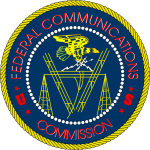 The FCC opened up an important licensing window for new noncommercial FM stations in 2007, announcing the first round of license winners in 2008. However another 59 licenses remained up in the air due to the Commission needing to pick a winner amongst competing applications. The FCC announced those winners on Tuesday [PDF].
The FCC opened up an important licensing window for new noncommercial FM stations in 2007, announcing the first round of license winners in 2008. However another 59 licenses remained up in the air due to the Commission needing to pick a winner amongst competing applications. The FCC announced those winners on Tuesday [PDF].
The Commission uses a point system to judge which group should receive a noncommercial FM license amongst multiple competitors. The system awards points with preference to candidates that are locally headquartered with an “established” presence, do not have a controlling interest in another nearby station and which propose to serve the largest number of people.
For the first time the FCC had to contend with applicants who are currently running low-power stations. Because the operators of LPFM stations cannot also operate full-power stations, the Commission will require these operators to give up their LPFM licenses before signing on with their full-power stations. In order to make sure their communities are not deprived of service any longer than necessary the Commission is allowing the LPFM stations to petition to maintain broadcasts until they are ready to begin test broadcasts with their full-power stations.
 A total of nine LPFM station operators were in competition for licenses nationwide, and of these five won. Two winners are stations that have been operating as traditional community radio stations: Radio Free Moscow in Moscow, Idaho and Berkshire Community Radio in Great Barrington, MA.
A total of nine LPFM station operators were in competition for licenses nationwide, and of these five won. Two winners are stations that have been operating as traditional community radio stations: Radio Free Moscow in Moscow, Idaho and Berkshire Community Radio in Great Barrington, MA.
Radio Free Moscow (RFM) edged out Fire Media Corporation and Country Roots Preservation Group based upon RFM demonstrating that it is an “established local applicant,” which neither of the other contenders claimed. Berkshire Community Radio (BCR) won out over the University of Massachusetts and Home Improvement Ministries. BCR and UMass both scored the same number of points, which required the FCC to use “tie breaker” criteria. The first tie-breaker criterion prefers the organization that has fewer licenses in other communities. UMass operates WBCR in Boston, while BCR, as a LPFM, operates no other, which resulted in BCR winning this competition.

Amongst the rest of the licensees [PDF], seventeen appear to be obviously religious groups, three are universities or colleges, two are primary or secondary schools, two are established public broadcasters and one is a Native American group. The nature or affiliation of the other licensees can’t be easily discerned from their names.
These awards are considered tentative because will be an opportunity for the filing of petitions to deny a license to any of the winners. However, in practice, such denials rarely occur.


